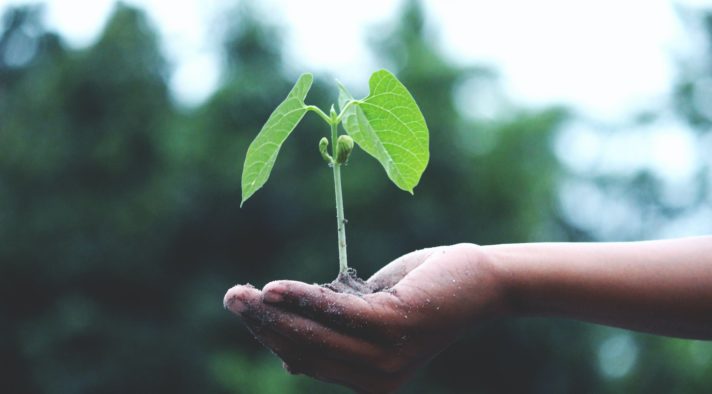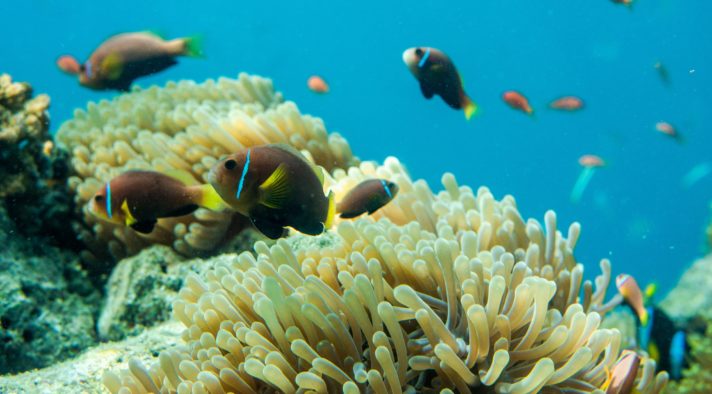2022 is considered the “make-or-break” year for biodiversity. With wildlife being lost at a rate not seen since the last mass extinction, the Convention on Biological Diversity (CBD COP15), taking place in Kunming, China, is eagerly awaited. If the climate crisis impacts are global, the issue of biodiversity loss is particularly local.
The region of La Rioja, in northern Spain, considers the biodiversity crisis and the climate crisis as being of equal importance and recognizes the links that unite them both. We have talked to Mr. Alejandro Dorado Nájera, Spokesperson for the Government of La Rioja, about their actions and expectations as a new member of Regions4.
Regions4: Mr. Dorado, the COP26 in Glasgow has shown that it is still necessary to increase the level of ambition to the level of urgency that climate change requires. How do you assess the results of COP26? What are the framework actions being taken by the La Rioja Government to adapt the territory and increase the resilience of the region?
Alejandro Dorado: We must recognize the value of these international forums in which the nations of the world become aware of environmental challenges and recognize the responsibility we have towards them. I always like to remember the success of the Montreal Protocol for the protection of the ozone layer: it can give us the optimism we need because it shows that, when we agree and accept the seriousness of situations, we are able to stop the environmental deterioration. This is why it is so important to act against the climate crisis. And to act now!
For the first time in many decades, we are finally taking action in La Rioja. In a few weeks, the Riojan Agency for Energy Transition will be up and running, and the efforts to decarbonize the economy and fight against climate change will pivot. In addition, we are finishing our Climate Change bill, the first in La Rioja! We are also defining the first Climate Change Adaptation Plan together with the Mitigation and Circular Economy strategies among others while promoting sustainable mobility with the construction of bike lanes or promoting public transportation.
Regions4: The latest global summits have also shown that climate action must have as its central axis the protection of biodiversity and natural resources. In this sense, what key points can you give us for greater integrated action on biodiversity?
AD: Since the beginning, our government considers the biodiversity crisis and the climate crisis as being of equal importance and recognizes the links that unite them both in the negative and in the positive feedback.
That is why we are promoting the new and first Rioja Law on Biodiversity and Natural Heritage, which will soon reach the Parliament of La Rioja, and also expanding protected natural spaces such as the Natura 2000 Network.
And that is why we insist a lot on environmental education and on talking about and disseminating concepts such as “ecosystem services”. They are useful for us to involve and raise awareness among citizens and make them understand to what extent our economy, our society, and, of course, our environment depend on ecosystems and how these crises put everything at risk.
Environmental challenges have social and economic consequences that affect vulnerable groups the most. We have clearly seen it in terms of the health-environment link that has become so evident during the pandemic.
Regions4: Working on innovative solutions to today’s interconnected global emergencies is what is setting regional governments apart to make a difference. How is your region working to achieve the 2030 Agenda and the SDGs?
AD: The Government of La Rioja is working on a regional sustainable development strategy based on 7 areas: equality, environmental challenges – such as the climate crisis, demographic challenge, job insecurity, high-quality public services and education, and the fight against social inequality. A strategy that will be presented this year.
In addition, we carry out awareness-raising activities based on the SDGs, such as talks, conferences, and related events.
Likewise, it should be noted that the Regional Budgets have been aligned with the achievement of the Sustainable Development Goals for several years, to mainstream their achievement through the work of all the Government ministries
Moreover, since 2019, we have had a council that reflects in its name, and with a specific department, the importance that we give to sustainable development in the Government: the council of Equality, Participation and Agenda 2030.
Regions4: The next COP15 in China is expected to approve a specific decision to recognize the role of regional governments in the implementation of the post-2020 global biodiversity goals. What message would you like to send to the Parties to the Convention on Biological Diversity in support of the efforts of the Edinburgh Declaration?
AD: One does not have to invent anything new, we ought to put into practice the old slogan “think globally, act locally”. On this matter, the regional governments, especially in decentralized and quasi-federal states like Spain, have a leading role, and an obvious responsibility.
The regions, the Autonomous Communities, and Cities in the Spanish case are not oblivious to what is happening in the world, especially in environmental issues. There is nothing more international than the environment; but at the same time, there is nothing more local, because its deterioration affects us all: our health, our right to enjoy a healthy environment, the economy, and well-being. And because its management often falls on subnational administrations.
It is imperative to count on the regions to tackle the environmental crises.
Regions4: What are your expectations by joining Regions4 and how do you see the role of international networks in achieving greater global advocacy for sustainable development?
AD: The Government of La Rioja considers itself an ecologist, but also European and internationalist. For this reason, it is very important to us to both share our experiences with other regions of the world, as well as to learn, get new ideas and good practices, and implement them. Learn from the successes (and mistakes) of other territories and that our successes (and mistakes) can serve as learning for others. In short, being able to contribute from La Rioja, and with institutional loyalty, to the fight against biodiversity, climate, and the achievement of the SDGs of the 2030 Agenda.



